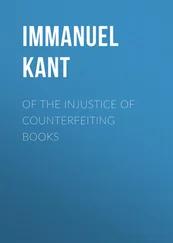Thus we cogitate — and necessarily — a given time completely elapsed up to a given moment, although that time is not determinable by us. But as regards time future, which is not the condition of arriving at the present, in order to conceive it; it is quite indifferent whether we consider future time as ceasing at some point, or as prolonging itself to infinity. Take, for example, the series m, n, o, in which n is given as conditioned in relation to m, but at the same time as the condition of o, and let the series proceed upwards from the conditioned n to m (l, k, i, etc.), and also downwards from the condition n to the conditioned o (p, q, r, etc.)— I must presuppose the former series, to be able to consider n as given, and n is according to reason (the totality of conditions) possible only by means of that series. But its possibility does not rest on the following series o, p, q, r, which for this reason cannot be regarded as given, but only as capable of being given (dabilis).
I shall term the synthesis of the series on the side of the conditions — from that nearest to the given phenomenon up to the more remote — regressive; that which proceeds on the side of the conditioned, from the immediate consequence to the more remote, I shall call the progressive synthesis. The former proceeds in antecedentia, the latter in consequentia. The cosmological ideas are therefore occupied with the totality of the regressive synthesis, and proceed in antecedentia, not in consequentia. When the latter takes place, it is an arbitrary and not a necessary problem of pure reason; for we require, for the complete understanding of what is given in a phenomenon, not the consequences which succeed, but the grounds or principles which precede.
In order to construct the table of ideas in correspondence with the table of categories, we take first the two primitive quanta of all our intuitions, time and space. Time is in itself a series (and the formal condition of all series), and hence, in relation to a given present, we must distinguish a priori in it the antecedentia as conditions (time past) from the consequentia (time future). Consequently, the transcendental idea of the absolute totality of the series of the conditions of a given conditioned, relates merely to all past time. According to the idea of reason, the whole past time, as the condition of the given moment, is necessarily cogitated as given. But, as regards space, there exists in it no distinction between progressus and regressus; for it is an aggregate and not a series — its parts existing together at the same time. I can consider a given point of time in relation to past time only as conditioned, because this given moment comes into existence only through the past time rather through the passing of the preceding time. But as the parts of space are not subordinated, but co-ordinated to each other, one part cannot be the condition of the possibility of the other; and space is not in itself, like time, a series. But the synthesis of the manifold parts of space —(the syntheses whereby we apprehend space)— is nevertheless successive; it takes place, therefore, in time, and contains a series. And as in this series of aggregated spaces (for example, the feet in a rood), beginning with a given portion of space, those which continue to be annexed form the condition of the limits of the former — the measurement of a space must also be regarded as a synthesis of the series of the conditions of a given conditioned. It differs, however, in this respect from that of time, that the side of the conditioned is not in itself distinguishable from the side of the condition; and, consequently, regressus and progressus in space seem to be identical. But, inasmuch as one part of space is not given, but only limited, by and through another, we must also consider every limited space as conditioned, in so far as it presupposes some other space as the condition of its limitation, and so on. As regards limitation, therefore, our procedure in space is also a regressus, and the transcendental idea of the absolute totality of the synthesis in a series of conditions applies to space also; and I am entitled to demand the absolute totality of the phenomenal synthesis in space as well as in time. Whether my demand can be satisfied is a question to be answered in the sequel.
Secondly, the real in space — that is, matter — is conditioned. Its internal conditions are its parts, and the parts of parts its remote conditions; so that in this case we find a regressive synthesis, the absolute totality of which is a demand of reason. But this cannot be obtained otherwise than by a complete division of parts, whereby the real in matter becomes either nothing or that which is not matter, that is to say, the simple. Consequently we find here also a series of conditions and a progress to the unconditioned.
Thirdly, as regards the categories of a real relation between phenomena, the category of substance and its accidents is not suitable for the formation of a transcendental idea; that is to say, reason has no ground, in regard to it, to proceed regressively with conditions. For accidents (in so far as they inhere in a substance) are co-ordinated with each other, and do not constitute a series. And, in relation to substance, they are not properly subordinated to it, but are the mode of existence of the substance itself. The conception of the substantial might nevertheless seem to be an idea of the transcendental reason. But, as this signifies nothing more than the conception of an object in general, which subsists in so far as we cogitate in it merely a transcendental subject without any predicates; and as the question here is of an unconditioned in the series of phenomena — it is clear that the substantial can form no member thereof. The same holds good of substances in community, which are mere aggregates and do not form a series. For they are not subordinated to each other as conditions of the possibility of each other; which, however, may be affirmed of spaces, the limits of which are never determined in themselves, but always by some other space. It is, therefore, only in the category of causality that we can find a series of causes to a given effect, and in which we ascend from the latter, as the conditioned, to the former as the conditions, and thus answer the question of reason.
Fourthly, the conceptions of the possible, the actual, and the necessary do not conduct us to any series — excepting only in so far as the contingent in existence must always be regarded as conditioned, and as indicating, according to a law of the understanding, a condition, under which it is necessary to rise to a higher, till in the totality of the series, reason arrives at unconditioned necessity.
There are, accordingly, only four cosmological ideas, corresponding with the four titles of the categories. For we can select only such as necessarily furnish us with a series in the synthesis of the manifold.
| 1 The absolute Completeness of the COMPOSITION of the given totality of all phenomena. |
| 2 The absolute Completeness of the DIVISION of given totality in a phenomenon. |
| 3 The absolute Completeness of the ORIGINATION of a phenomenon. |
| 4 The absolute Completeness of the DEPENDENCE of the EXISTENCE of what is changeable in a phenomenon. |
We must here remark, in the first place, that the idea of absolute totality relates to nothing but the exposition of phenomena, and therefore not to the pure conception of a totality of things. Phenomena are here, therefore, regarded as given, and reason requires the absolute completeness of the conditions of their possibility, in so far as these conditions constitute a series — consequently an absolutely (that is, in every respect) complete synthesis, whereby a phenomenon can be explained according to the laws of the understanding.
Читать дальше












